Kebocoran lagi di reaktor nuklir Jepang
Terbaru 6 Juni 2013 - 16:07 WIB
http://www.bbc.co.uk/indonesia/dunia/2013/06/130606_fukushimabocor.shtml

Kebocoran disebutkan ditemukan oleh seorang pekerja menemukan pada hari Rabu.
Operator pembangkit nuklir Jepang, Fukushima, mengatakan mereka menemukan kembali kebocoran air radioaktif.
Tokyo Electric Power Company (Tepco) mengatakan seorang pekerja menemukan kebocoran itu Rabu (05/06).
Hari Selasa lalu, Tepco juga mengumumkan mereka menemukan caesium radioaktif di air tanah di seputar pembangkit nuklir itu.
Pembangkit tersebut rusak dalam gempa bumi dan tsunami tahun 2011, dan beberapa kali mengalami kebocoran dan Klik
padam listrik dalam beberapa bulan terakhir.
Ratusan tanki air dibangun di seputar pembangkit
untuk menyimpan air yang terkontaminasi yang digunakan untuk
mendinginkan reaktor.
Dalam satu pernyataan, Tepco mengatakan air yang
terkontaminasi bocor dari tempat penyimpan dengan kecepatan satu tetes
setiap tiga sampai empat detik.
Kebocoran April lalu

Pembangkit Fukushima mengalami tiga kali putus aliran listrik dalam lima minggu tahun ini.
Sejumlah laporan menyebutkan pengumuman ini
menunjukkan bahwa air masih bocor dari tanki penyimpanan dan merembes ke
tanah, sesuatu yang belum pernah diangkat Tepco.
Wartawan BBC di Tokyo, Rupert Wingfield-Hayes
mengatakan kebocoran ini akan semakin menyulitkan Tepco untuk meyakinkan
nelayan setempat bahwa memompa air tanah dan dibuang ke laut merupakan
langkah yang aman.
Pembangkit Fukushima mengalami tiga kali putus aliran listrik dalam lima minggu tahun ini.
Kebocoran air radioaktif dari salah satu tanki penyimpanan bawah tanah juga terjadi April lalu.
Badan nuklir PBB, IAEA, mengatakan April lalu bahwa sistem di pembangkit itu harus ditingkatkan.
Gempa dan tsunami yang terjadi tanggal 11 Maret 2011 menyebabkan rusaknya tiga reaktor nuklir di Jepang.
Para teknisi telah memperbaiki reaktor namun masih banyak yang harus dilakukan untuk menangani dampak kebocoran ini.
PLTN Fukushima Kembali Alami Kebocoran
- Kamis, 6 Juni 2013 | 16:40 WIB
- http://internasional.kompas.com/read/2013/06/06/16404087/PLTN.Fukushima.Kembali.Alami.Kebocoran
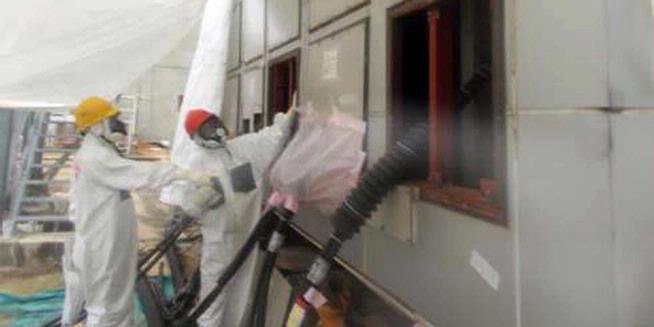
Para petugas memeriksa kondisi PLTN
Fukushima yang pasokan listriknya sempat terputus, bula lalu. Diduga,
tikus adalah penyebab putusnya listrik itu. | TEPCO/AFP
TOKYO, KOMPAS.com — Operator
pembangkit nuklir Fukushima, Jepang, Kamis (6/6/2013), menemukan kembali
kebocoran air radioaktif.
Tokyo Electric
Power Company (Tepco) mengatakan, seorang pekerja menemukan kebocoran
itu hari Rabu (5/6/2013).
Selasa lalu, Tepco juga mengumumkan bahwa mereka menemukan caesium radioaktif di air tanah di seputar pembangkit nuklir itu.
Pembangkit
tersebut rusak dalam gempa bumi dan tsunami tahun 2011, dan beberapa
kali mengalami kebocoran dan padam listrik dalam beberapa bulan
terakhir.
Ratusan tangki air dibangun di seputar pembangkit untuk
menyimpan air terkontaminasi yang digunakan untuk mendinginkan
reaktor.
Dalam satu pernyataan resmi, Tepco
mengatakan, air yang terkontaminasi bocor dari tempat penyimpan dengan
kecepatan satu tetes setiap tiga sampai empat detik.
Sejumlah
laporan menyebutkan pengumuman ini menunjukkan bahwa air masih bocor
dari tangki penyimpanan dan merembes ke tanah, sesuatu yang belum
pernah diangkat Tepco.
Wartawan BBC
di Tokyo, Rupert Wingfield-Hayes, mengatakan, kebocoran ini akan
semakin menyulitkan Tepco untuk meyakinkan nelayan setempat bahwa
memompa air tanah dan dibuang ke laut merupakan langkah yang aman.
Pembangkit Fukushima mengalami tiga kali putus aliran listrik dalam lima minggu tahun ini.
Kebocoran air radioaktif dari salah satu tangki penyimpanan bawah tanah juga terjadi April lalu.
Badan nuklir PBB, IAEA, mengatakan pada April lalu bahwa sistem di pembangkit itu harus ditingkatkan.
Gempa dan tsunami yang terjadi pada 11 Maret 2011 menyebabkan rusaknya tiga reaktor nuklir di Jepang.
Para teknisi telah memperbaiki reaktor, tetapi masih banyak yang harus dilakukan untuk menangani dampak kebocoran ini.
Sumber : BBC Indonesia
Editor : Ervan Hardoko

How Australian political rivals view China
August 5, 2013 -- Updated 0628 GMT (1428 HKT)
http://edition.cnn.com/2013/08/04/opinion/australia-election-rudd-abbott
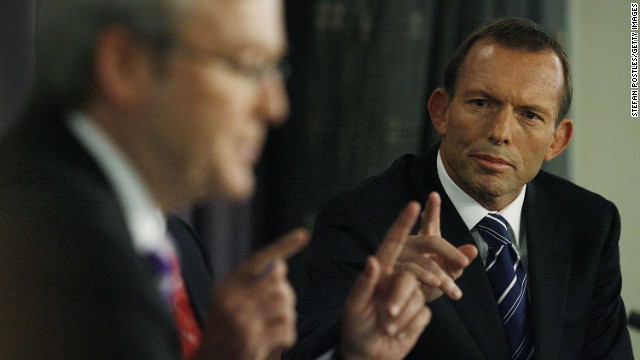
Australia's
opposition leader Tony Abbott during a debate against Prime Minister
Kevin Rudd at the National Press Club on March 23, 2010.
STORY HIGHLIGHTS
- Australian election pits incumbent Kevin Rudd against Tony Abbott
- Abbott leads Liberal-National coalition, Abbot's mentor is former PM John Howard
- Rudd wants China and U.S. to carve out new Asia-Pacific "strategic road-map"
- Abbott wants Australia-China relationship to move to "shared values"
Editor's note: Geoff
Hiscock is a former Asia Business Editor of CNN.com and the author of
"Earth Wars: The Battle for Global Resources," published by Wiley.
Sydney (CNN) -- Kevin Rudd and Tony Abbott, the two
men vying to be Australia's prime minister in the September 7 national
election, offer contrasting views on China, the country that looms
largest on Australia's economic and strategic horizon.
Rudd,
the Chinese-speaking incumbent prime minister in the Labor-led
government, says the China resources boom is over and Australia needs to
prepare for that transition, given how important China has become as a
trade partner in the past decade.
China is a key
destination for Australian resources such as iron ore, coal and LNG. But
in recent months, even China's breakneck economic pace has hit some speed bumps.
On the broader
geopolitical front, Rudd wants China and the United States to carve out a
new Asia-Pacific "strategic road-map" that will enhance trade,
investment and security in the region.
The Opposition's view on China
Abbott, who has led the
opposition Liberal Party since 2009, wants the Australia-China
relationship to move from one based on shared interests to one of
"shared values."
But he notes that
Australia's friendship with China is more recent than that with Japan,
and less developed than that with the United States.
In a major policy speech
to a business audience in Beijing last year, Abbott said he believed it
would take time before Australia's ties with China approached "the warmth that we take for granted with America." Still, he believes it is an effort worth making.
Like his mentor, former
Australian prime minister John Howard, Abbott is a rock-solid supporter
of Australia's military alliance with the United States, and believes
that it is possible to be friends both with Washington and Beijing.
Howard, he said, "understood that you could make a new friend without
losing an old one."
Abbott said Australia
accepted China's modernization of its armed forces and so Australia's
strong military relationship with the United States should be seen more
as a means of "building trust than picking sides." His objective in
government would be engagement with China rather than containment, and
cooperation rather than strategic competition.
Where they agree
Where Rudd and Abbott
are in agreement is on the need to wrap up a free trade agreement with
China that has been in the works since 2005. The two countries recently
began their 20th round of negotiations, but differences over
agriculture, investment access and intellectual property protection
continue to stymie a result.
In contrast, neighboring
New Zealand signed a free trade agreement with China in 2008 and has
seen its exports of meat, dairy and other foodstuffs grow significantly.
There has been some bilateral progress this year. During a visit to China in April, Julia Gillard,
the Labor leader who took over when Rudd was dumped by his own party in
2010 before she suffered the same fate at Rudd's hands on June 26,
signed a "strategic partnership" agreement with President Xi Jinping
that calls for annual high-level leadership meetings. Rudd has already
invited Xi to visit Australia next year.
Rudd's enthusiasm for all things Chinese hasn't waned. For the last
year he has been banging the drum about the need for a new China-US
strategic road map.
Geoff Hiscock
Abbott has said that if
he wins government, his first overseas trip would be to Indonesia, and
his second would include China. He has also pledged to sign a China free
trade agreement within 12 months of taking office.
But Abbott has also
expressed wariness about Chinese state-controlled investment in
Australia. "Chinese investment is complicated by the prevalence of
state-owned enterprises," he told the Australian Chamber of Commerce in Beijing.
"It would rarely be in Australia's national interest to allow a foreign
government or its agencies to control an Australian business."
In that same speech,
Abbott pushed the need for Chinese political and legal reforms. "In the
long term, China should prosper even more if its people enjoyed freedom
under the law and the right to choose a government, despite the
difficulty of managing this transition in a country with a tumultuous
history," he said.
But whatever
disagreements Australia had with China, Abbott said it was important to
acknowledge the vast improvement in living standards that Chinese people
had enjoyed since the 1970s.
Where Abbott is
comfortable with U.S. primacy and policy, Rudd argues that it is up to
both China and the United States to take the lead in creating a more
integrated, secure and prosperous Asia-Pacific.
Rudd's record in China
The first time Rudd was
Australia's prime minister (2007-2010), he irritated the Chinese
leadership through his criticism of China's human rights record in Tibet
during an April 2008 speech to university students in Beijing.
Rudd, a lifelong student
of Chinese history and a fluent Mandarin speaker from his time as a
diplomat in the Australian Embassy in Beijing in the 1980s, maintained
he was simply speaking frankly, as befitted one of China's "zhengyou" or
"true, critical friends."
Rudd's enthusiasm for
all things Chinese hasn't waned. For the last year he has been banging
the drum about the need for a new China-US strategic road map --
something that may have seen its formative steps in the informal
discussions between U.S. President Barack Obama and President Xi at
Sunnylands in California in early June.
Rudd believes that Xi is
"a Chinese leader that the Americans can do business with." In a speech
to foreign correspondents in Sydney late last year, Rudd described Xi
as "experienced, confident and self-assured and because of his family's
political pedigree (his father Xi Zhongxun was a Politburo member),
comfortable with the mantle of political leadership."
Certainly the Sunnylands
meeting between Obama and Xi looked to have increased the personal
chemistry between the two leaders. Unlike some of his predecessors, Xi
is relaxed in an international setting and has spent considerable time
in the United States.
It would rarely be in Australia's national interest to allow a
foreign government or its agencies to control an Australian business.
Tony Abbott, Opposition leader
Rudd sees a role for Xi
that goes beyond the development of long-term U.S.-China relations to
one that involves "shaping the broad architecture of a new rules-based
order for Asia."
This is how Rudd
described Xi just before the latter's elevation to the top job in China:
"Given the formidable strategic and economic challenges that lie ahead,
both for China itself, and China's place in the region and the world,
on balance I believe Xi Jinping to be the man for the times."
Road map for China
Rudd's road map for
U.S.-China ties includes more regular meetings between the U.S. and
Chinese presidents -- about five times a year -- and the appointment on
both sides of an undisputed "point person" who would be the main channel
for the relationship, in the style of Henry Kissinger in the Nixon era.
For the U.S., that person is current National Security Adviser Susan Rice,
who replaced Tom Donilon on July 1. For China, Xi's top foreign policy
advisor is former ambassador to the U.S., former foreign minister and
current State Councillor Yang Jiechi, though academic and Politburo member Wang Huning is also regarded as an influential "behind the scenes" figure.
In Rudd's view, any
U.S.-China strategic road map for Asia should seek to include Japan and
China in a new Trans-Pacific Partnership that ideally would become a
"genuine free trade area of Asia and the Pacific."
Rudd is the first to
acknowledge the difficulties in getting China and Japan together. To
achieve this, he says, would require proactive political leadership from
Beijing, Washington and Tokyo.
For his part, Abbott
says that while U.S. policy is not infallible,"its interventions abroad
are invariably in favour of democracy and human rights, not against
them."
Because of the history
and values shared by Australians and Americans, Abbott said there were
easy returns for Australia from the relationship with Washington. But to
get anything like comparable returns with China, Australians would have
to work much harder.
China would prosper with democracy: Abbott
- Date
AAP
China would become even more prosperous if it embraced
democracy and greater legal freedoms, Opposition Leader Tony Abbott has
told business leaders in Beijing.
In the main speech of his three-day visit to China, Mr Abbott
said that as prime minister he would hope for China to embark on
political reforms to match its economic liberalisation.
"In the long term, China should prosper even more if its
people enjoyed freedom under the law and the right to choose a
government, despite the difficulty of managing this transition in a
country with a tumultuous history," he told a sold-out function hosted
by AustCham.
Mr Abbott - who rarely speaks publicly on foreign policy
issues - said Australia and China had very different attitudes to human
rights, press freedom and the courts.
Advertisement
He said a coalition government would "be a strong voice for human rights" but would push the case for improvements respectfully.
"Whatever disagreements Australia has with China, it's
important to acknowledge the vast improvement in living standards that
Chinese people have enjoyed since the 1970s," he said.
Mr Abbott said conservative leaders from Robert Menzies to
John Howard had had "good Asia credentials" and he would seek to
maintain that consistency.
Mr Abbott pledged to visit China in the early days of his
prime ministership, as part of his second overseas trip. He has
previously pledged to make Jakarta his first overseas destination.
"It will take time and much further evolution for our
friendship with China to approach the warmth that we take for granted
with America. But it is worth the effort and it must be made," he said.
He rejected suggestions Australia would one day need to
choose between its alliance with the US and commercial relationship with
China.
"That's a choice we should never have to make. If we ever needed to, I suspect that the world would be in a dark place."
He pledged to renew Australia's free trade talks with China, which have dragged on for seven fruitless years.
An incoming coalition government would welcome Chinese
investment on the same basis it would welcome investment from other
countries, he said.
But he also warned Chinese investment was complicated by the prevalence of state-owned enterprises.
"It would rarely be in Australia's national interest to allow
a foreign government or its agencies to control an Australian
business," he said.
"That's because we don't support the nationalisation of business by the Australian government, let alone by a foreign one."
A coalition government would do all it could to ensure
territorial disputes in the South China Sea were managed peacefully, he
said.
It would also continue Australia's economic relationship with Taiwan within the bounds of the One China policy.
How Australian political rivals view China
August 5, 2013 -- Updated 0628 GMT (1428 HKT)

Australia's
opposition leader Tony Abbott during a debate against Prime Minister
Kevin Rudd at the National Press Club on March 23, 2010.
STORY HIGHLIGHTS
- Australian election pits incumbent Kevin Rudd against Tony Abbott
- Abbott leads Liberal-National coalition, Abbot's mentor is former PM John Howard
- Rudd wants China and U.S. to carve out new Asia-Pacific "strategic road-map"
- Abbott wants Australia-China relationship to move to "shared values"
Editor's note: Geoff
Hiscock is a former Asia Business Editor of CNN.com and the author of
"Earth Wars: The Battle for Global Resources," published by Wiley.
Sydney (CNN) -- Kevin Rudd and Tony Abbott, the two
men vying to be Australia's prime minister in the September 7 national
election, offer contrasting views on China, the country that looms
largest on Australia's economic and strategic horizon.
Rudd,
the Chinese-speaking incumbent prime minister in the Labor-led
government, says the China resources boom is over and Australia needs to
prepare for that transition, given how important China has become as a
trade partner in the past decade.
China is a key
destination for Australian resources such as iron ore, coal and LNG. But
in recent months, even China's breakneck economic pace has hit some speed bumps.
On the broader
geopolitical front, Rudd wants China and the United States to carve out a
new Asia-Pacific "strategic road-map" that will enhance trade,
investment and security in the region.
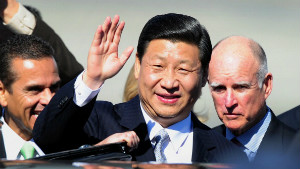
Who is Xi Jinping?
The Opposition's view on China
Abbott, who has led the
opposition Liberal Party since 2009, wants the Australia-China
relationship to move from one based on shared interests to one of
"shared values."
But he notes that
Australia's friendship with China is more recent than that with Japan,
and less developed than that with the United States.
In a major policy speech
to a business audience in Beijing last year, Abbott said he believed it
would take time before Australia's ties with China approached "the warmth that we take for granted with America." Still, he believes it is an effort worth making.
Like his mentor, former
Australian prime minister John Howard, Abbott is a rock-solid supporter
of Australia's military alliance with the United States, and believes
that it is possible to be friends both with Washington and Beijing.
Howard, he said, "understood that you could make a new friend without
losing an old one."
Abbott said Australia
accepted China's modernization of its armed forces and so Australia's
strong military relationship with the United States should be seen more
as a means of "building trust than picking sides." His objective in
government would be engagement with China rather than containment, and
cooperation rather than strategic competition.
Where they agree
Where Rudd and Abbott
are in agreement is on the need to wrap up a free trade agreement with
China that has been in the works since 2005. The two countries recently
began their 20th round of negotiations, but differences over
agriculture, investment access and intellectual property protection
continue to stymie a result.
In contrast, neighboring
New Zealand signed a free trade agreement with China in 2008 and has
seen its exports of meat, dairy and other foodstuffs grow significantly.
There has been some bilateral progress this year. During a visit to China in April, Julia Gillard,
the Labor leader who took over when Rudd was dumped by his own party in
2010 before she suffered the same fate at Rudd's hands on June 26,
signed a "strategic partnership" agreement with President Xi Jinping
that calls for annual high-level leadership meetings. Rudd has already
invited Xi to visit Australia next year.
Rudd's enthusiasm for all things Chinese hasn't waned. For the last
year he has been banging the drum about the need for a new China-US
strategic road map.
Geoff Hiscock
Abbott has said that if
he wins government, his first overseas trip would be to Indonesia, and
his second would include China. He has also pledged to sign a China free
trade agreement within 12 months of taking office.
But Abbott has also
expressed wariness about Chinese state-controlled investment in
Australia. "Chinese investment is complicated by the prevalence of
state-owned enterprises," he told the Australian Chamber of Commerce in Beijing.
"It would rarely be in Australia's national interest to allow a foreign
government or its agencies to control an Australian business."
In that same speech,
Abbott pushed the need for Chinese political and legal reforms. "In the
long term, China should prosper even more if its people enjoyed freedom
under the law and the right to choose a government, despite the
difficulty of managing this transition in a country with a tumultuous
history," he said.
But whatever
disagreements Australia had with China, Abbott said it was important to
acknowledge the vast improvement in living standards that Chinese people
had enjoyed since the 1970s.
Where Abbott is
comfortable with U.S. primacy and policy, Rudd argues that it is up to
both China and the United States to take the lead in creating a more
integrated, secure and prosperous Asia-Pacific.
Rudd's record in China
The first time Rudd was
Australia's prime minister (2007-2010), he irritated the Chinese
leadership through his criticism of China's human rights record in Tibet
during an April 2008 speech to university students in Beijing.
Rudd, a lifelong student
of Chinese history and a fluent Mandarin speaker from his time as a
diplomat in the Australian Embassy in Beijing in the 1980s, maintained
he was simply speaking frankly, as befitted one of China's "zhengyou" or
"true, critical friends."
Rudd's enthusiasm for
all things Chinese hasn't waned. For the last year he has been banging
the drum about the need for a new China-US strategic road map --
something that may have seen its formative steps in the informal
discussions between U.S. President Barack Obama and President Xi at
Sunnylands in California in early June.
Rudd believes that Xi is
"a Chinese leader that the Americans can do business with." In a speech
to foreign correspondents in Sydney late last year, Rudd described Xi
as "experienced, confident and self-assured and because of his family's
political pedigree (his father Xi Zhongxun was a Politburo member),
comfortable with the mantle of political leadership."
Certainly the Sunnylands
meeting between Obama and Xi looked to have increased the personal
chemistry between the two leaders. Unlike some of his predecessors, Xi
is relaxed in an international setting and has spent considerable time
in the United States.
It would rarely be in Australia's national interest to allow a
foreign government or its agencies to control an Australian business.
Tony Abbott, Opposition leader
Rudd sees a role for Xi
that goes beyond the development of long-term U.S.-China relations to
one that involves "shaping the broad architecture of a new rules-based
order for Asia."
This is how Rudd
described Xi just before the latter's elevation to the top job in China:
"Given the formidable strategic and economic challenges that lie ahead,
both for China itself, and China's place in the region and the world,
on balance I believe Xi Jinping to be the man for the times."
Road map for China
Rudd's road map for
U.S.-China ties includes more regular meetings between the U.S. and
Chinese presidents -- about five times a year -- and the appointment on
both sides of an undisputed "point person" who would be the main channel
for the relationship, in the style of Henry Kissinger in the Nixon era.
For the U.S., that person is current National Security Adviser Susan Rice,
who replaced Tom Donilon on July 1. For China, Xi's top foreign policy
advisor is former ambassador to the U.S., former foreign minister and
current State Councillor Yang Jiechi, though academic and Politburo member Wang Huning is also regarded as an influential "behind the scenes" figure.
In Rudd's view, any
U.S.-China strategic road map for Asia should seek to include Japan and
China in a new Trans-Pacific Partnership that ideally would become a
"genuine free trade area of Asia and the Pacific."
Rudd is the first to
acknowledge the difficulties in getting China and Japan together. To
achieve this, he says, would require proactive political leadership from
Beijing, Washington and Tokyo.
For his part, Abbott
says that while U.S. policy is not infallible,"its interventions abroad
are invariably in favour of democracy and human rights, not against
them."
Because of the history
and values shared by Australians and Americans, Abbott said there were
easy returns for Australia from the relationship with Washington. But to
get anything like comparable returns with China, Australians would have
to work much harder.
Address to the Australia-India Business Council, Sydney
 Posted on Saturday, 1 December 2012
Posted on Saturday, 1 December 2012http://www.tonyabbott.com.au/LatestNews/Speeches/tabid/88/articleType/ArticleView/articleId/9018/Address-to-the-Australia-India-Business-Council-Sydney.aspx
As a 23 year
old I spent three months backpacking around India, through Mumbai,
Rajasthan, Delhi, Kashmir and then Bihar where I spent some six weeks
with the Australian Jesuit mission. I was on my way to England as a
Rhodes Scholar and didn’t want to fly over India without touching down. I
had read too many of Rudyard Kipling's stories. I was too conscious of
India’s role in Australia’s battles, and those of the old empire, not to
want to explore this exotic yet accessible country.
At Gallipoli, in the Middle East, in France, even in PNG, there were
war graves alongside those of Australians with headstones simply
inscribed "here lies a soldier of the Indian Army." As Rahul Dravid
observed of our two countries in his recent Bradman lecture, "we were
comrades long before we were competitors."
Back in the early 1980s, I found a country of contrasts where bullock
carts would take supplies into nuclear power stations; a land which,
even then, had a vast middle class; and where almost every educated
person spoke my language.
Australia and India have so much in common: democracy, the rule of
law, a vigorous free press, a language, and perhaps most importantly a
deep atavistic yearning to beat England at cricket.
It's important to note that China is not the only emerging super
power of Asia. With a GDP that has quadrupled in two decades, with
economic growth of up to 10 per cent a year and with the world’s third
largest total gross domestic product, at least in purchasing power
terms, India is also an emerging super power of Asia. What's more, it is
the emerging democratic super power of Asia.
Since the early 1980s when I spent my three months in India, our two
countries have grown significantly closer together. Some 300,000
Australians were born in India. In some years India is now our single
largest source of migrants. In some years there have been over 100,000
Indian students studying here in Australia.
India is now Australia’s sixth largest trading partner with the
promise of an even larger role should a free trade agreement be
negotiated.
So, the people-to-people relationship is doing fine. It’s the government-to-government relationship that needs work.
In 2007, the incoming Australian government banned uranium sales to
India and has only just un-banned them. No uranium has actually been
sold even though this is an important source of clean energy to a
country that desperately needs power and even though India is a fully
democratic country which has maintained an impeccable non-proliferation
record and which wholly respects the rights of its neighbours.
The incoming government also suspended the Quadrilateral Security
Dialogue that united the key democracies of our region - Australia, the
United States, Japan and India.
And, of course, federal and state governments here in Australia were
too slow to tackle the violence against Indian students that flared up,
particularly in Victoria, in 2009.
To her credit, Prime Minister Gillard has visited India recently.
John Howard made several visits as prime minister, but I regret to say
that the last Indian prime minister to visit Australia was Rajiv Gandhi
back in 1986. Prime Minister Singh was, perhaps pointedly, unable to
visit Australia for the Commonwealth Heads of Government meeting last
year.
As Prime Minister, should that honour fall to me, I would take India seriously as I have always done.
There are three categories of countries that are particularly
important to Australia - our neighbours, our major trading partners and
our key strategic allies - the countries with which we share important
values - and India falls into all three categories. It is not only the
emerging democratic super power. It’s also the emerging English-speaking
super power. As far as I am concerned, this means it should never
be the emerging super power that's taken-for-granted or neglected.
By 2050, India is forecast to be the world’s most populous nation.
Unlike China, which is tipped to grow old before its citizens grow rich,
India is tipped to grow rich before it goes grey.
As Prime Minister, should that honour fall to me, I will treat
India as one of the key countries helping to shape the future of
Australia and the wider world.
I know the Indian-born citizens of this country. There are few people
who better embody Sir Robert Menzies' injunction to be "lifters, not
leaners" which is why the Indian people who have come to Australia have
been such model citizens.
I salute Australia, I salute India and I pledge myself to build an even stronger friendship between our two countries.
On this occasion, I should also thank the Australia-India Business
Council for the work you are doing to build links - personal as well as
economic - between our two countries.
This is a very important relationship and I am so pleased to be here tonight to see it flourish.
Thank you.
[ends]Australia and the great Indian uranium sale debate
August 20, 2013 -- Updated 0220 GMT (1020 HKT)
http://edition.cnn.com/2013/08/19/business/australia-election-india-uranium/
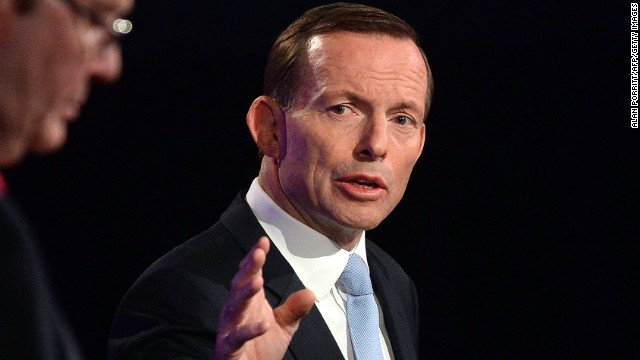
Tony Abbott (R) debates Australian Prime Minister Kevin Rudd at the National Press Club in Canberra, August 11, 2013.
STORY HIGHLIGHTS
- Hiscock: If elected, Abbott and Rudd will likely adopt different positions towards India
- Sales of uranium, which India seeks, is a touchstone issue in the Australia-India relationship
- Abbott has stated that India is the emerging superpower Australia will never take "for granted"
- Rudd, a former diplomat to Beijing, is seen as more reluctant to sell uranium to India
Editor's note: Geoff
Hiscock is a former Asia Business Editor of CNN.com and the author of
"Earth Wars: The Battle for Global Resources," published by Wiley.
Sydney (CNN) -- Backpacking across India in 1981 as a
young man fresh out of Sydney University, Tony Abbott found what he
called "a country of contrasts, where bullock carts would take supplies into nuclear power stations."
Now the man who opinion
polls predict will be Australia's next prime minister after the
September 7 national election is prepared to see those power stations
run on Australian uranium -- a position that goes down well in New
Delhi.
Abbott, a religious man
whose time in India included six weeks at the Australian Jesuit mission
in Bihar, leads the conservative Liberal-National opposition that is
locked in a struggle for power with Labor, led by Abbott's political
rival and incumbent Australian prime minister, Kevin Rudd.
Uranium is the key energy commodity that differentiates how Rudd and Abbott approach relations with India.
On paper, a bipartisan position
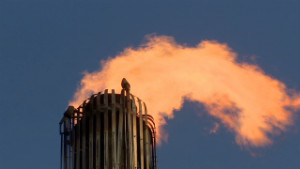
Kazakhstan: Uranium capital of the world
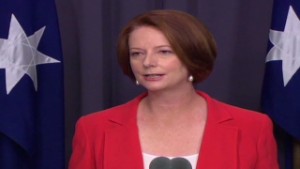
The rise and fall of Julia Gillard
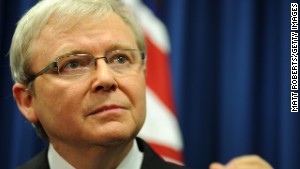
Can Kevin Rudd deliver for Australia?
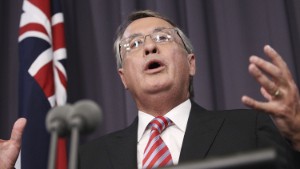
Kevin Rudd sworn in as Australian PM
Australia, which has
about a third of the world's recoverable low-cost uranium resources,
sells the nuclear fuel to China, Japan, South Korea, Taiwan, the United
States, Canada and the European Union, but not so far to India.
Both the Labor and
Liberal parties have a policy that they will sell Australian uranium to
energy-starved India. So on paper, it looks like a bipartisan position.
But Rudd is a reluctant
helmsman for his party's policy, believing India must accept stringent
conditions before it gets Australian uranium for its power plants. In
his first stint as prime minister in 2007-2010, he was adamant that
because India was not a signatory to the nuclear non-proliferation
treaty, uranium sales to it were precluded.
He said this was not a policy directed against India, but one that applied globally.
When Julia Gillard, the
deputy prime minister who overthrew Rudd for the leadership in June 2010
(before herself being ousted in June this year by Rudd), decided to
push through a Labor Party policy change on the uranium issue in late
2011, Rudd was not consulted.
Rudd has said that India
does not need to source uranium from Australia. It gets most of its
supply now from Russia, France and Kazakhstan.
Abbott's Indian ambitions
In contrast, Abbott is happy to see Australian uranium shipped to Indian nuclear power plants. At the India Australia Friendship Fair in Sydney last year, he said: "Yes, we will sell uranium to India because we know that India is one of the world's great democracies."
Yes, we will sell uranium to India because we know that India is one of the world's great democracies.
Tony Abbott
In reality, any uranium
sales are years away, so the Australia-India nuclear trade is more
symbolic than substantial. New Delhi views it as a touchstone for the
state of the bilateral relationship. In March this year, the first official-level talks were held on a civil nuclear cooperation agreement that
is the first step towards uranium sales. A prerequisite is an
undertaking by India that it will not use Australian uranium in any
weapons-related capacity.
When Rudd addressed the Indian Council of World Affairs in Delhi in November 2009,
he harked back to his days at Canberra's Australian National
University, where he studied Indian civilization and its impact on
China.
But Rudd's primary focus
has always been China. He is a Chinese speaker, a former diplomat in
Beijing and a lifelong student of all things Chinese. For his part,
Abbott, a Rhodes Scholar at Oxford University, maintains that if he
becomes prime minister he will take India seriously, "as I have always
done."
China 'not the only superpower'
In an address to the Australia India Business Council in Sydney
last December, Abbott said that as prime minister he would treat India
as one of the key countries helping to shape the future of Australia and
the wider world.
"It's important to note
that China is not the only emerging superpower of Asia," Abbott said,
pointing to the quadrupling of India's gross domestic product (GDP) in
two decades and high economic growth rates.
"What's more, India is the
emerging democratic superpower of Asia, and also the emerging
English-speaking super power. As far as I am concerned, this means it
should never be the emerging superpower that's taken for granted or
neglected."
Abbott said India fell
into all three categories of countries that were particularly important
to Australia: "Our neighbors, our major trading partners and our key
strategic allies."
He said that by 2050,
India was forecast to be the world's most populous nation. "Unlike
China, which is tipped to grow old before its citizens grow rich, India
is tipped to grow rich before it goes gray."
Australia-India relations
In general, relations
between Australia and India are good, up from a low point in 2009-10
when the uranium issue and a series of attacks on South Asian students
in Melbourne sparked heated discussion. India in some years is the
largest source of new immigrants to Australia, and Indian student
numbers continue to be strong.
Unlike China, which is tipped to grow old before its citizens grow rich, India is tipped to grow rich before it goes gray.
Tony Abbott
Trade and investment
flows are increasing -- India is now Australia's fourth biggest export
market, taking mainly coal, gold and copper, and it has made substantial
investments in Australia's mining sector. A "strategic partnership"
launched in November 2009 by Rudd during his meeting with the Indian
Prime Minister Manmohan Singh was given a further push by Gillard during
her visit to India in October 2012.
Negotiations for a free trade
agreement began in 2011 and reached a fifth round of talks in Canberra
in May.
No Indian prime minister
has visited Australia since Rajiv Gandhi in 1986. Since then, six
Australian prime ministerial visits to India have taken place. Singh was
invited to the Commonwealth Heads of Government Meeting (CHOGM) held in
Perth in October 2011, but sent vice president Hamid Ansari instead. In
the view of some political observers, Singh's no-show reflected
annoyance over the uranium issue.
There is also a sense
that Australia strategically is not really all that important to India,
which must contend with a neighborhood made up of China, Pakistan,
Bangladesh, Burma and Sri Lanka.
In contrast, India ranks as a top-five priority for Australia in Asia, along with China, Indonesia, Japan and South Korea.
If Abbott wins office on
September 7, expect Australia to give even more priority to India. If
Rudd retains office, it will be a case of "steady as she goes."
Ahead of his last visit
to India in 2009, Rudd noted that like most of Australia's
relationships, the one with India "has some bumps in the road"
occasionally. "But we can work our way through them," he said. Uranium
likely will continue to be one of those bumps.
Tidak ada komentar:
Posting Komentar